Filter by
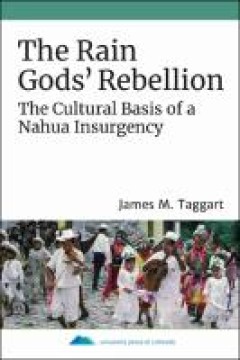
The rain gods' rebellion : the cultural basis of a Nahua insurgency
"The Rain Gods’ Rebellion examines Nahua oral narratives to illuminate the cultural basis of the 1977–1984 rebellion against the local Hispanic elite in Huitzilan de Serdán, Mexico. Drawing from forty years of fieldwork in the region, James M. Taggart traces the sociopolitical role of Nahua rain gods—who took both human and divine forms—back hundreds of years and sheds new light on the…
- Edition
- edision 12
- ISBN/ISSN
- 9781607329503
- Collation
- ix. ;241 p. ;ill.
- Series Title
- -
- Call Number
- 972.48.
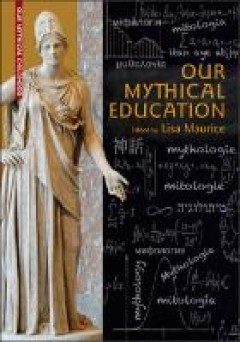
Our mythical education : the reception of classical myth wordwide in formal e…
Clearly, wherever myth forms part of an educational syllabus, value judgements have been made by those who chose the texts, with regard to content, approach, usage, emphases, purpose and many other elements. [...] the present volume examines the reception of such myth within formal education in the twentieth and twenty-first centuries […]. It focuses for the most part on school education, but…
- Edition
- -
- ISBN/ISSN
- 9788323546160
- Collation
- 582p. ; ill.
- Series Title
- -
- Call Number
- BL723 OUR m
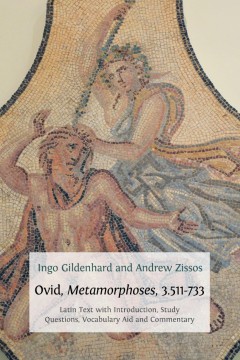
Ovid, Metamorphoses, 3.511-733 : Latin text with introduction, commentary, gl…
This extract from Ovid's 'Theban History' recounts the confrontation of Pentheus, king of Thebes, with his divine cousin, Bacchus, the god of wine. Notwithstanding the warnings of the seer Tiresias and the cautionary tale of a character Acoetes (perhaps Bacchus in disguise), who tells of how the god once transformed a group of blasphemous sailors into dolphins, Pentheus refuses to acknowledge t…
- Edition
- -
- ISBN/ISSN
- 9781783740840
- Collation
- xii, 221p. ; ill.
- Series Title
- -
- Call Number
- 873.01 GIL o
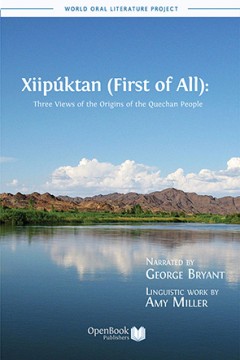
Xiipúktan (first of all): three views of the origins of the Quechan people
The Quechan people live along the lower part of the Colorado River in the United States. According to tradition, the Quechan and other Yuman people were created at the beginning of time, and their Creation myth explains how they came into existence, the origin of their environment, and the significance of their oldest traditions. The Creation myth forms the backdrop against which much of the tr…
- Edition
- -
- ISBN/ISSN
- 9781909254411
- Collation
- 210 p. ; 24 cm
- Series Title
- -
- Call Number
- 973.0497 BRY x
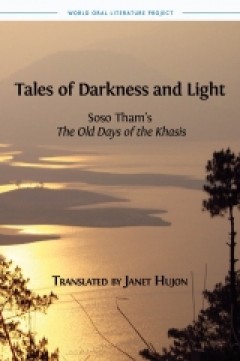
Tales of darkness and light: Soso Tham's the old days of the Khasis
Soso Tham (1873–1940), the acknowledged poet laureate of the Khasis of northeastern India, was one of the first writers to give written poetic form to the rich oral tradition of his people. Poet of landscape, myth and memory, Soso Tham paid rich and poignant tribute to his tribe in his masterpiece The Old Days of the Khasis. Janet Hujon’s vibrant new translation presents the English reader…
- Edition
- -
- ISBN/ISSN
- 9781783744701
- Collation
- 83 p. : ill. ; 24 cm
- Series Title
- -
- Call Number
- 895.93 THA t
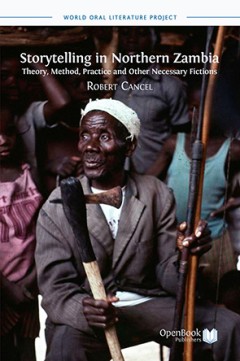
Storytelling in Northern Zambia: theory, method, practice and other necessary…
Storytelling plays an important part in the vibrant cultural life of Zambia and in many other communities across Africa. This innovative book provides a collection and analysis of oral narrative traditions as practiced by five Bemba-speaking ethnic groups in Zambia. The integration of newly digitalised audio and video recordings into the text enables the reader to encounter the storytellers the…
- Edition
- -
- ISBN/ISSN
- 9781909254619
- Collation
- xviii, 274 p. : ill. : ind. ; 24 cm
- Series Title
- -
- Call Number
- 808.543 CAN s
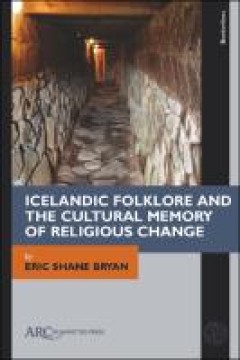
Icelandic folklore and the cultural memory of religious change
This book attempts to understand the origins and development of religious belief in Iceland and greater Scandinavia through the lenses of five carefully selected Icelandic folktales collected in Iceland during the nineteenth century. Each of these five stories has a story of its own: a historical and cultural context, a literary legacy, influences from beliefs of all kinds (orthodox and heterod…
- Edition
- -
- ISBN/ISSN
- 9781641893763
- Collation
- VII, 162 p.
- Series Title
- Borderlines,
- Call Number
- 398 BRY i
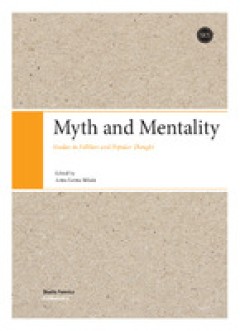
Myth and mentality: studies in folklore and popular thought
"The recent fascination in Finnish folklore studies with popular thought and the values and emotions encoded in oral tradition began with the realisation that the vast collections of the Finnish folklore archives still have much to offer the modern-day researcher. These archive materials were not only collected by scholars, but also by the ordinary rural populace interested in their own traditi…
- Edition
- -
- ISBN/ISSN
- 9789522228499
- Collation
- 317 p. : ill. ; 25 cm.
- Series Title
- Studia Fennica. 8
- Call Number
- 398.094897 SII m
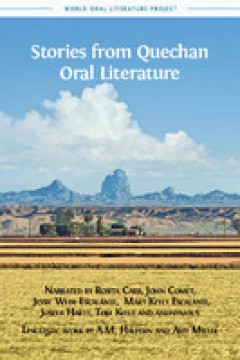
Stories from Quechan oral literature
"The Quechan are a Yuman people who have traditionally lived along the lower part of the Colorado River in California and Arizona. They are well known as warriors, artists, and traders, and they also have a rich oral tradition. The stories in this volume were told by tribal elders in the 1970s and early 1980s. The eleven narratives in this volume take place at the beginning of time and introduc…
- Edition
- -
- ISBN/ISSN
- 9781909254879
- Collation
- XII, 533 p.
- Series Title
- World Oral Literature Series
- Call Number
- 970.00497 HAL s
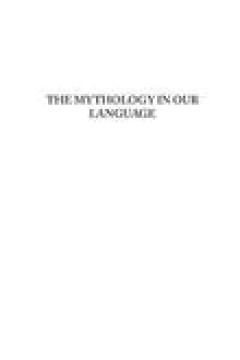
The mythology in our language
In 1931 Ludwig Wittgenstein wrote his famous Remarks on Frazer’s “Golden Bough.". At that time, anthropology and philosophy were in close contact—continental thinkers drew heavily on anthropology’s theoretical terms, like mana, taboo, and potlatch, in order to help them explore the limits of human belief and imagination. Now the book receives its first translation by an anthropologist, …
- Edition
- -
- ISBN/ISSN
- 9780990505068
- Collation
- IX, 250 p.
- Series Title
- -
- Call Number
- 201.3 WIT m
 Computer Science, Information & General Works
Computer Science, Information & General Works  Philosophy & Psychology
Philosophy & Psychology  Religion
Religion  Social Sciences
Social Sciences  Language
Language  Pure Science
Pure Science  Applied Sciences
Applied Sciences  Art & Recreation
Art & Recreation  Literature
Literature  History & Geography
History & Geography